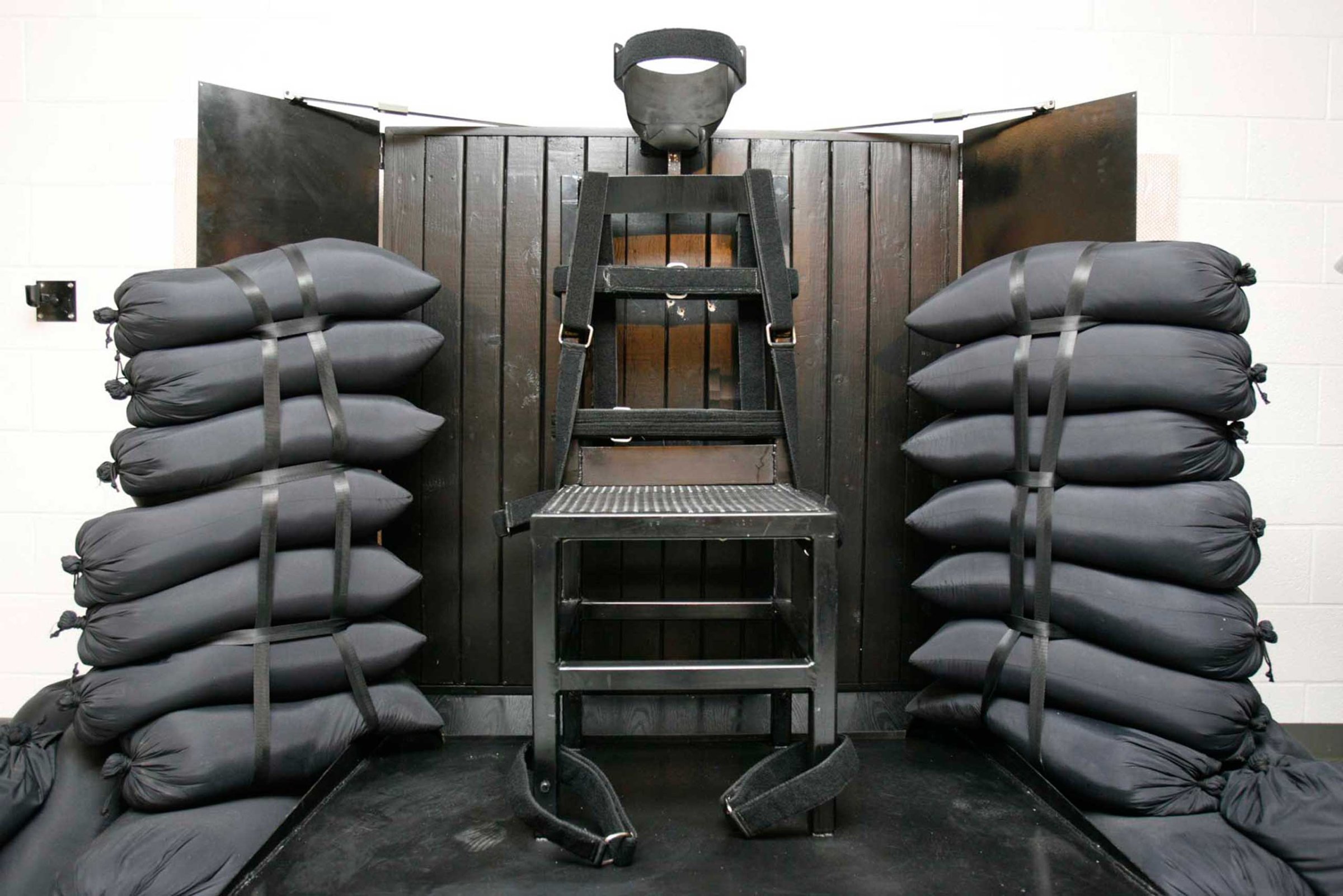
Utah has a unique history with firing squad executions. The state used gunmen to execute Gary Gilmore in 1977, the first inmate put to death after the Supreme Court lifted a five-year moratorium on capital punishment. For years, it’s been one of just two states to allow the method as an option for inmates. And now, state legislators are looking to make it the default practice if lethal injection drugs are unavailable.
On Wednesday, the Law Enforcement and Criminal Justice Interim Committee voted 9-2 in approving legislation that would bring back firing squads in executions. The bill, which will likely head to the full legislature early next year, would mandate a court hearing prior to an execution, in which a judge would determine whether the state had sufficient drugs to carry out lethal injection. If the judge ruled that drugs were lacking, a firing squad would be mandated; according to the Salt Lake Tribune, State Rep. Paul Ray says the state currently doesn’t have them.
MORE: Execution Problems Revive Talk of Using Firing Squads and the Electric Chair
Utah and Oklahoma are the only two states in recent years that have allowed firing squads in executions, but only Utah has actually used the method since capital punishment was reinstated. The practice soon fell out of favor following the highly publicized execution of Gilmore (famously captured in Norman Mailer’s The Executioner’s Song). Public opinion soon shifted toward lethal injection, which became the go-to execution method nationwide and was widely considered more humane. Only three inmates — Gilmore, John Albert Taylor and more recently Ronnie Lee Gardner in 2010 — have been executed by firing squad since 1997, all in Utah.
But states around the U.S. have been looking often into archaic and previously discarded methods, thanks to increasing reluctance from pharmaceutical companies to sell drugs to prison systems.
A similar bill in Wyoming that would allow the state to use a firing squad if execution drugs are unavailable advanced in September and is expected to be taken up by the full legislature next year. In May, Tennessee passed a law bringing back the electric chair if lethal injection drugs can’t be acquired or if it’s deemed unconstitutional. (Lethal injection, however, is still the default method of the capital punishment.) And legislators in Louisiana have attempted to revive the chair, but with little success.
More Must-Reads from TIME
- Why Trump’s Message Worked on Latino Men
- What Trump’s Win Could Mean for Housing
- The 100 Must-Read Books of 2024
- Sleep Doctors Share the 1 Tip That’s Changed Their Lives
- Column: Let’s Bring Back Romance
- What It’s Like to Have Long COVID As a Kid
- FX’s Say Nothing Is the Must-Watch Political Thriller of 2024
- Merle Bombardieri Is Helping People Make the Baby Decision
Contact us at letters@time.com